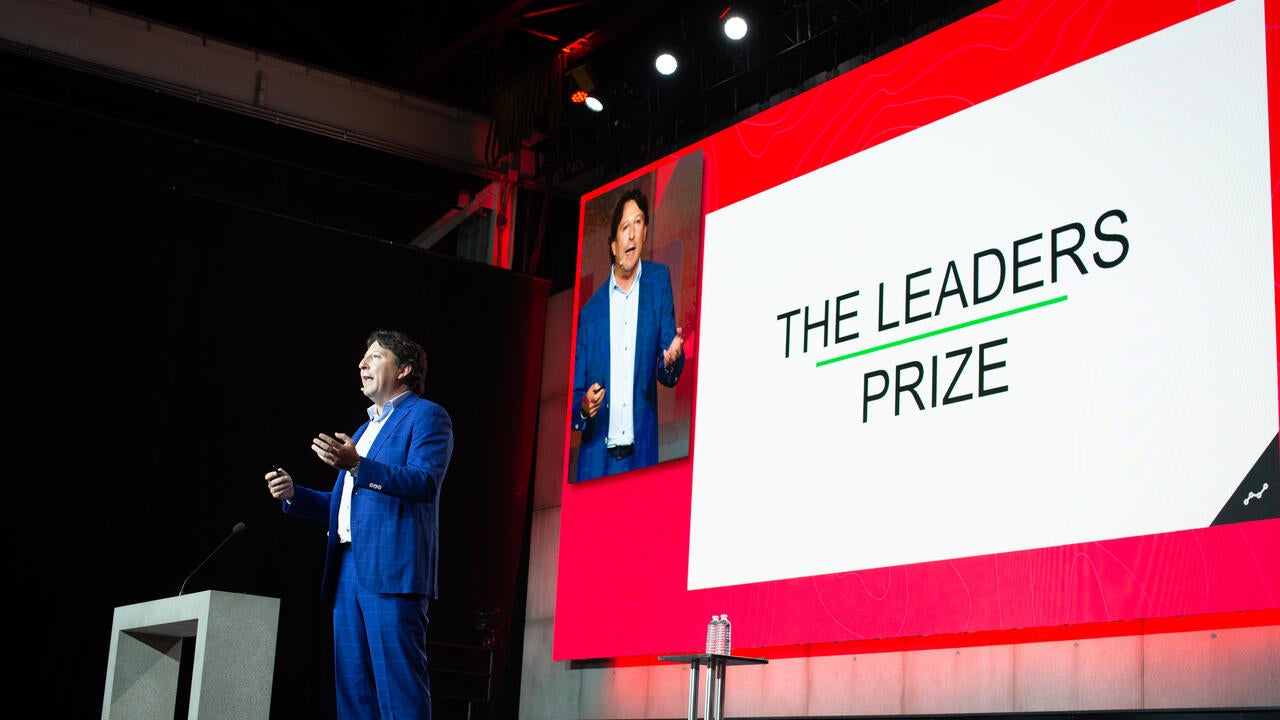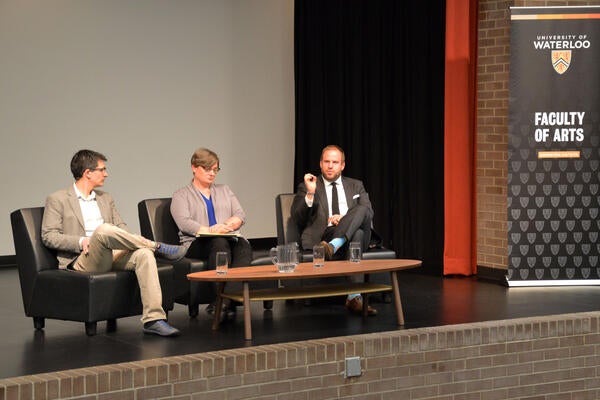
Re-imagining and reaffirming tech as a force for good
University of Waterloo partners with True North 2019 to explore the social impact of technology

University of Waterloo partners with True North 2019 to explore the social impact of technology
By University RelationsTechnology runs deep in our culture. It has become a huge part of our daily lives and impacts society in ways we may not even notice.
True North 2019, happening this week in Waterloo region, uncovers the negative and positive impacts of technology through this year’s theme that explores the intersection of society and technology. The University of Waterloo is proud to partner with True North to bring together tech experts from around the world to examine how tech can be a force for good and serve society for the better.
Read individual Tweet on Twitter
University of Waterloo researchers and alumni feature prominently at this year’s conference, weighing in on how living digitally impacts our health, our careers, our communities and our planet.
Roger Melko, a professor in the Faculty of Science, believes breakthroughs in quantum computing will only accelerate our digital lives.
“We all have some quantum magic in our pockets right now,” he said referring to our smartphones. The impact of the smartphone on our daily lives is undeniable, but a major breakthrough in quantum will create disruption that expands all industries in ways we can only imagine.
Read individual Tweet on Twitter
Melko notes that the University of Waterloo has the best students in physics and math, producing the talent that will lead the second technology revolution.
An example of this revolutionary talent is Waterloo student Shak Lakhani (BASc in progress) who is the CEO of Avro Life Science. He was at True North speaking about AI in the advancement of drug discovery and delivery. Technology is being heralded as the path to innovate health solutions more efficiently.
Mohamed Musbah (BSE ’12) is a Waterloo alumnus and the director of product at Microsoft Research Montreal. He is passionate about building responsible technology and believes we need to test for fairness in AI to remove bias in outputs.
Watch Musbah talk about how bias can creep into AI.
Marcel O’Gorman, a Waterloo professor in the Faculty of Arts, led the conference’s opening workshop that explored how we can bring ethics into technology. The workshop included Waterloo co-op students, PhD students and faculty to assist the audience in exploring the social impact of technology.
Read individual Tweet on Twitter
Waterloo alumnus Jade Choy (BAFM ’17) joined an inspiring panel to discuss the rise of social enterprise in the tech industry. As the co-founder and CEO of EPOCH, social impact is engrained in her business model. EPOCH is an engagement platform that helps HR teams build impactful cultures to engage employees in giving back to their communities through volunteer work. She sees a growing awareness in tech companies to consider their impact on society. They want to know they are making a positive impact.
Watch Choy explain the importance of measuring social impact.
The Leaders Prize was announced at True North. The University of Waterloo is the academic partner for the Leaders Prize, a first-of-its-kind Canadian competition will award $1 million to the winning team using AI to solve a pressing global problem.
The challenge? To combat the negative societal impact of fake news.
Teams will have one year to solve the problem. The final pitch competition and awards celebration will be held at the next True North conference in June 2020.
Read individual Tweet on Twitter

Read more
Leaders at Waterloo Innovation Summit in London share views on the future of higher education in changing world

Read more
Leaders tell Waterloo Innovation Summit to fund basic research to commercialize unexpected outcomes

Read more
AI needs diverse human perspectives to ensure everyone benefits from technology, Waterloo experts say
The University of Waterloo acknowledges that much of our work takes place on the traditional territory of the Neutral, Anishinaabeg, and Haudenosaunee peoples. Our main campus is situated on the Haldimand Tract, the land granted to the Six Nations that includes six miles on each side of the Grand River. Our active work toward reconciliation takes place across our campuses through research, learning, teaching, and community building, and is co-ordinated within the Office of Indigenous Relations.